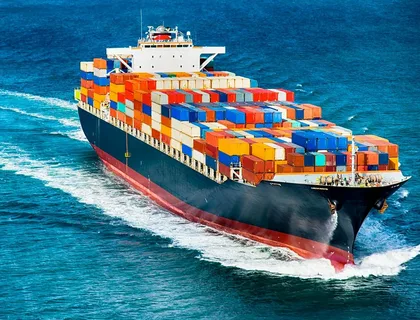In the realm of global logistics, sea cargo stands out as a cornerstone of international trade. Transporting goods by sea offers a reliable, cost-effective, and scalable solution for moving large volumes of cargo across continents. Whether you’re a business managing inventory, a company expanding into new markets, or an individual shipping personal items, understanding the essentials of sea cargo can streamline your shipping process and enhance your global reach. Here’s a brief overview of sea cargo and its advantages.
1. Why Choose Sea Cargo?
- Cost-Effectiveness: Sea cargo is often the most economical choice for transporting large quantities of goods. Compared to air freight, sea shipping offers lower costs per ton, making it ideal for bulk shipments and long-distance transport.
- Capacity and Flexibility: Cargo ships have substantial capacity, able to handle a wide range of goods from raw materials to finished products. This flexibility allows for the transport of large or heavy items that might not be feasible by other means.
- Global Reach: With an extensive network of shipping routes and ports, sea cargo connects virtually every corner of the globe. This widespread connectivity ensures that you can access markets and supply chains around the world.
2. Types of Sea Cargo Services
- Full Container Load (FCL): Ideal for large shipments, FCL involves renting an entire container for your cargo. This option provides exclusivity, faster transit times, and increased security for your goods.
- Less Than Container Load (LCL): For smaller shipments that don’t fill an entire container, LCL allows you to share container space with other shippers. This option is cost-effective for smaller loads and provides flexibility for businesses with varied shipping needs.
- Breakbulk Cargo: For goods that are too large or irregularly shaped for standard containers, breakbulk shipping involves transporting items individually. This method is suitable for oversized equipment, machinery, and other non-containerized cargo.
3. Key Considerations for Sea Cargo
- Transit Time: Sea cargo typically takes longer than air freight due to the slower pace of ships. Plan your shipments according to your timeline and allow for potential delays caused by weather or port congestion.
- Customs and Documentation: Accurate documentation is crucial for smooth customs processing. Ensure you provide all necessary paperwork, including bills of lading, commercial invoices, and packing lists, to avoid delays and additional costs.
- Packaging and Handling: Proper packaging is essential to protect your goods during transit. Use robust materials and secure your cargo to withstand the rigors of sea transport and prevent damage.
- Insurance: Sea cargo is exposed to various risks, including weather conditions and accidents. Consider purchasing cargo insurance to safeguard your shipment and mitigate potential losses.
4. Finding the Right Sea Cargo Service
- Experienced Providers: Choose a reputable shipping company with experience in handling sea cargo. Look for companies with a solid track record in terms of reliability and service quality.
- Service Options: Evaluate the range of services offered, including tracking, customs assistance, and container options. Comprehensive service can enhance the efficiency and ease of your shipping process.
- Customer Reviews: Research customer feedback and reviews to gauge the reliability of the service provider. Positive testimonials and recommendations can help you make an informed decision.
Final Words
Sea cargo remains a vital component of global logistics, offering a cost-effective and versatile solution for transporting goods across international borders. With its extensive capacity, global reach, and economic advantages, sea cargo is an excellent choice for businesses and individuals alike. By considering factors such as transit time, documentation, packaging, and insurance, you can navigate the complexities of sea shipping with confidence and ensure that your cargo arrives safely and efficiently. Embrace the benefits of sea cargo and enhance your global shipping strategy with this essential logistics tool.


